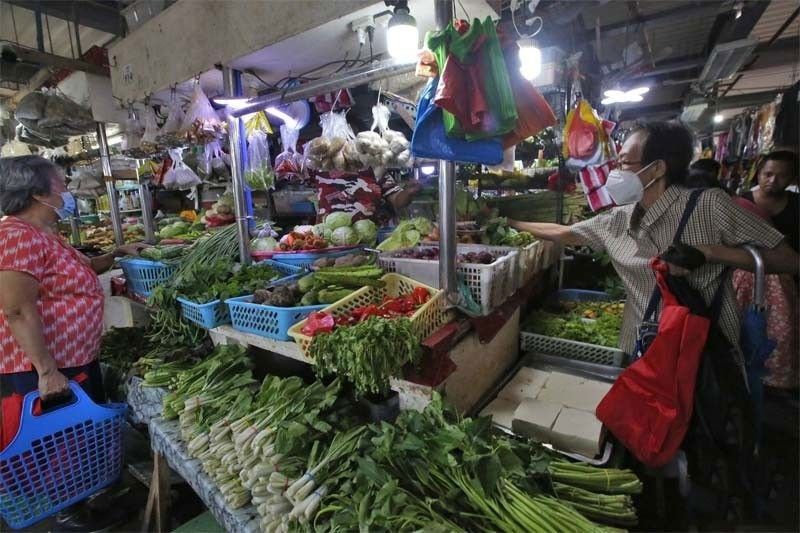What will drive socio-economic transformation in 2024?

The new year in the contemporary business world begins with the month of January, named after the Greek god Janus, a mythical figure who had two faces: one facing the past and the other looking at the future. It is from this representation that people have assumed the tradition of looking back before engaging in fresh starts under a tide of optimism, where opportunity is expected to translate to positive transformation.
Real socio-economic conditions of Filipinos have shown signs of improvement in recent months. The latest survey of the Social Weather Stations (SWS) in the third quarter of 2023 revealed that 48% of adult Filipinos expect their quality of life to improve in the next 12 months, while 40% say it will remain the same. Just 6% believe it will worsen.
The Philippine Statistics Authority (PSA) recently reported that in December 2023, headline inflation in the Philippines further slowed to 3.9% – the lowest inflation rate for 2023 – from the previous month’s 4.1%. This resulted in the national average inflation for 2023 settling at 6.0%. The decline in overall inflation in December was driven by the lower year-on-year growth in the index of housing, water, electricity, gas, and other fuels at 1.5%, followed by food and non-alcoholic beverages with 5.4% inflation.
Some 900,000 Filipinos are said to have been lifted from poverty since 2021, a transformation that can be a cause for celebration in any government function. According to the PSA, the poverty incidence among the Philippine population in the first half of 2023 was estimated at 22.4%, translating to 25.24 million people. Notably, this rate is lower than the 23.7% recorded in the same period in 2021, which was equivalent to 26.14 million. On the other hand, subsistence incidence among Filipinos, representing the proportion of those whose income is not enough to buy basic food needs, was registered at 8.7% or about 9.79 million people. Similarly, this was a decrease from the 9.9% recorded in the first half of 2021, which translated to 10.94 million. Since social development does not manifest itself overnight, the Philippine experience thus far may be considered a feat by itself.
In terms of labor, the PSA reported that the unemployment rate in October 2023 settled at 4.2%, down from the 4.8% recorded in July 2023. Notably, the unemployment rate in October 2023 – or around 2.09 million persons – marked the lowest level since April 2005. Meanwhile, the number of underemployed persons stood at 5.60 million out of the 47.80 million employed Filipinos, resulting in an underemployment rate of 11.7%, which is lower than the rate of 15.9% in July 2023.
Still, challenges to and pessimistic sentiments on the economy remain as the larger global economic landscape continues to be marked by uncertainties that can either serve simultaneously as risks or opportunities for the Philippines.
The most recent Consumer Expectations Survey of the Bangko Sentral ng Pilipinas (BSP) reveals a further decline in consumer confidence in the Philippine economy during the fourth quarter of 2023. The overall confidence index (CI) plummeted to -19.0% from -9.6% in the previous quarter. This more pronounced pessimism was attributed to the faster increase in the prices of goods, lower income, fewer available jobs, and concerns regarding the effectiveness of government policies on inflation management, public transportation, and financial assistance for low-income households.
Additionally, the outlook for the first quarter of 2024 and the subsequent 12 months reflects weakened consumer optimism as their CIs declined to 5.6% and 15.0%, respectively. This outlook for both periods was mainly driven by consumers’ expectations of the faster increase in the prices of goods, lower income, and fewer available jobs.
In December 2023, the government's most crucial economic instrument – the 2024 General Appropriations Act (GAA) – was approved, outlining the national budget for fiscal year 2024. Amounting to P5.768 trillion, it represents a 9.49% increase from the P5.268 trillion budget in 2023. Department of Budget and Management (DBM) Secretary Amenah Pangandaman stated that the 2024 GAA is designed to support the realization of the administration's Medium-Term Fiscal Framework (MTFF) and the 8-Point Socioeconomic Agenda, ensuring that no Filipino would be left behind.
By prioritizing these initiatives, the government can better promote economic growth, create employment opportunities, and bolster overall socioeconomic development. If implemented effectively and directed to deserving recipients, the national budget has the potential to not only drive the economy strongly but also bring transformative change to the lives of many Filipinos on the ground.
Moving forward into the year, the Philippines can, technically, sustain its economic trajectory and boost confidence among businesses and consumers in 2024 by strategically enhancing its position in the global supply chain. A key focus should be on promoting investments, particularly in the manufacturing sector, which can generate added employment and livelihood opportunities for Filipinos. Moreover, encouraging investments in healthcare and education will contribute to developing a better skilled, healthy, and economically secure workforce.
The government and the society at large have to be single-minded in clamping down on growth spoilers such as corruption, government inefficiency, unabated inflation, fiscal deficits, unemployment, high business costs, and other hindrances to ease of doing business. An integrated, proactive national strategy will not only stimulate production and job creation but also enhance the overall quality of life for a broader segment of the Filipino population.
Under any circumstances, national policymakers need to aim for actual results on the ground, because solid numbers are the most reliable measure of actual accomplishments. At the end of the day, these are the accomplishments that can stand public scrutiny and need no further explanations to an electorate making a crucial decision about their political future at the polls.
Venice Isabelle Rañosa is the research director of the Stratbase Group.
- Latest
























